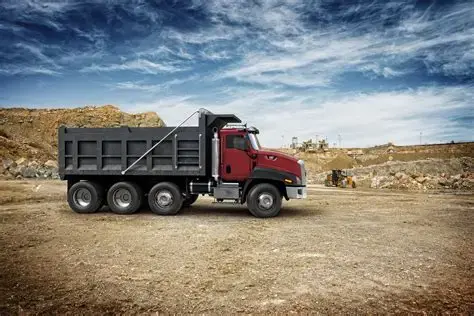Managing Dump Truck Drivers & Routes Effectively
- Sep 24, 2025
- 2 min read
Managing dump truck drivers and routes is a balancing act that requires precision, planning, and proactive oversight. Whether you're running a small fleet or a large operation, effective management directly impacts safety, fuel efficiency, driver satisfaction, and profitability.

Here are the best practices to help your dump trucking business thrive.
1. Implement Smart Scheduling Systems
Dump truck operations often involve tight deadlines and multiple job sites. Using digital scheduling tools helps:
Assign drivers based on availability and route efficiency
Avoid overworking drivers and reduce fatigue
Ensure compliance with Hours of Service (HOS) regulations
Smart scheduling improves productivity and reduces costly delays.
2. Optimize Routes with Technology
Route optimization software can significantly reduce fuel costs and travel time. These tools:
Analyze traffic patterns and road conditions
Suggest the most efficient paths for each job
Help avoid restricted zones and low-clearance areas
Efficient routing also improves customer satisfaction by ensuring timely deliveries.
3. Prioritize Driver Safety and Training
Dump truck drivers face unique hazards, especially on construction sites and uneven terrain. Safety training should include:
Load securement techniques
Defensive driving practices
Emergency response procedures
Regular refresher courses and safety audits help maintain high standards and reduce accident risks.
4. Conduct Pre- and Post-Trip Inspections
Routine inspections are essential for vehicle safety and compliance. Drivers should check:
Tire pressure and tread
Brake systems and hydraulics
Lights, mirrors, and backup alarms
Post-trip inspections help identify wear and tear early, preventing breakdowns and costly repairs.
5. Foster Communication and Feedback
Open communication between drivers and dispatchers improves morale and operational efficiency. Encourage:
Feedback on route challenges
Suggestions for improving schedules
Reporting of mechanical issues or safety concerns
A collaborative environment helps retain drivers and build a stronger team.
6. Secure the Right Insurance Coverage
Dump trucking involves high liability risks. Wexford Insurance offers tailored coverage for dump truck companies, including:
Auto Liability Insurance (required by law)
Physical Damage Coverage (for collisions and non-collision incidents)
Cargo Insurance (for debris, gravel, or construction materials)
Medical Payments and Uninsured Motorist Coverage
Comprehensive Coverage (for theft, vandalism, and natural disasters)
Whether you're an owner-operator or manage a fleet, Wexford Insurance helps you stay compliant and protected.
Conclusion
Managing dump truck drivers and routes effectively is key to running a safe, efficient, and profitable operation. By leveraging technology, prioritizing safety, and partnering with Wexford Insurance for comprehensive coverage, your business can stay ahead of the curve and deliver consistent results. Contact now!




